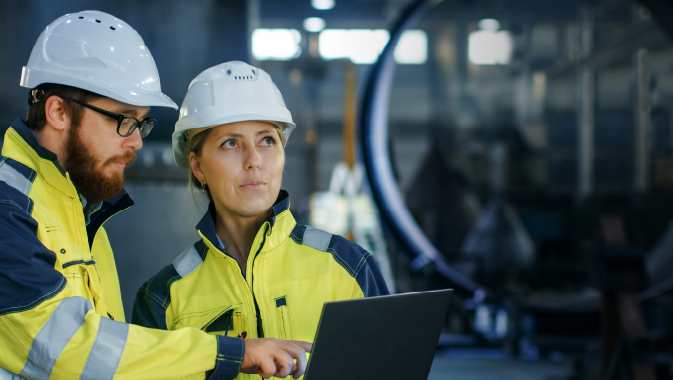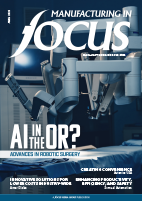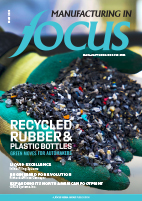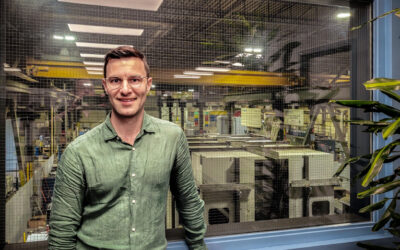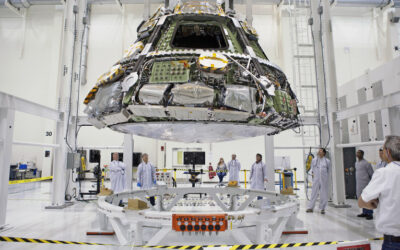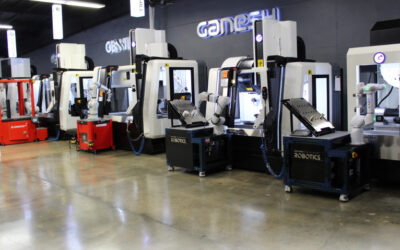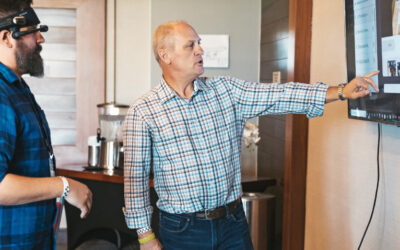Privately-held, family-owned Capps Manufacturing is a complete fabrication and assembly operation for aircraft products including thrust reversers, winglets, door assemblies, and sound suppressor components in Wichita, Kansas.
~
Founder Barney L. Capps was a tool builder in the early 1950s, and by the 1960s, he had progressed through the company where he worked at the time to become a plant manager. On the side, Barney began building parts at home in his two-car garage, and this venture eventually grew into a flourishing business. In the early 1980s, the business moved to a full-time machine shop, and in 1985, it was incorporated as Capps Manufacturing Inc.
In 1999, the headquarters changed locations to a new, 80,000-square-foot manufacturing facility, and in 2001, that was expanded by another 32,000 square feet as the business got involved with aluminum heat treating. Capps Manufacturing continued to grow, and today it has five buildings on the same campus that make up over 300,000 square feet of manufacturing space.
The company’s core skill is metal forming for the aerospace industry, which is primarily done with stretch forming and hydroforming. Stretch forming creates large contoured parts like automobile body panels by simultaneously bending and stretching a metal sheet over a die on a stretch press. Hydroforming uses hydraulic fluid at high pressure to push the sheet material into the die.
Capps manufactures these parts in-house using stretch forming and hydroforming as well as brake-forming, punch press stamping and forming, welding, aluminum heat treating, and chemical processing.
Capps also offers a multitude of other services and products to provide its customers with the convenience of a one-stop shop. It builds its own tools; it performs non-destructive testing on its products; it assembles parts, and it completes inspections for quality.
The management staff and the shop floor supervision staff at Capps Manufacturing all have more than twenty years of experience in the aerospace field. Approximately ninety-nine percent of its business is in the aerospace industry, and the other one percent of its revenue comes from a Canadian customer that makes large satellite dishes.
“We have one customer in Canada that builds big satellite dishes, and we supply them with a lot of their stretch form requirements. The skins and the rails that go around the satellites — they use stretch forming to accomplish those shapes, and we provide that service for them,” says Capps Manufacturing Senior Manager Don Smith.
Stretch forming is a rather advanced metal forming capability, and there are not many stretch forming business in the United States. “I don’t know of any other privately-held companies in the U.S. that have the stretch form capabilities that we do, so we can generally be considered one of the largest stretch formers in our industry,” says Don.
There are many benefits of using stretch formed metal, and it is required to achieve some of the complex contours that are encountered with airplane engineering. The stretch forming process typically also acts as a stress relief to the metal itself. If metal is formed by simply bending or rolling, a lot of stress is created on that part. By stretch forming the metal, it relaxes that stress and makes it a much more stable piece of material.
“In a lot of cases, people have tried to roll and/or bend things and then machine them afterwards, and the result of the product is that it no longer has the shape desired because of all the inherent stresses,” says Don. The stretch form process relieves the stress, and after a machining process is completed on stretch formed parts, there is much less material movement than there would be with other methods of forming.
Capps Manufacturing experienced a ten percent growth in sales last year. It had peaked prior to that in 2012 and then dipped about ten percent for the next four years until last year when it increased. It hopes to have the same amount of growth this year, and so far it is already on pace to match last year’s numbers.
The company recently acquired two new major pieces of equipment to encourage growth. Since it regularly works with large parts in the aerospace sector, it purchased its second aluminum heat treat furnace that is capable of holding parts up to twenty feet long. Capps brought home and completely rebuilt the used piece of equipment that came from Boeing in Auburn, Washington. It retrofitted the new oven control, and it had to raise the ceiling in the building where it would be stored. The large piece of equipment is now installed and operational. The other new piece of equipment is an additional five-axis computer numerical control (CNC) machining center.
Capps offers its employees a quality benefits package with a 401(k) plan. Hiring qualified people is a challenge for the company since it is in such a specialized field of manufacturing.
“We’re in a unique corner of the business, and there just aren’t stretch press operators walking around out there that you can pluck off the streets. Hiring them, training them, and retaining them can be challenging at times,” says Don.
Wichita, Kansas is referred to as the air capital of the world due to the high number of aircraft manufacturing companies in the area. Spirit AeroSystems is the world’s largest first-tier aerostructures manufacturer and is known for building the fuselages for Boeing 737s. It employs approximately 13,000 people in the Wichita area, and it is difficult for a smaller company to compete for the employees in the aerospace business. Wichita is also home to Beechcraft, Cessna, and Learjet Aircraft and about forty other aerospace subcontract manufacturing firms.
Although Capps has plenty of competition in the area for skilled workers in the aerospace industry, it does not have much competition in its particular field of stretch formed metal. In all of the Midwest, the closest competing company is Triumph Group in Shelbyville, Indiana.
Capps Manufacturing has customers all over the world including the United States, Canada, Mexico, Malaysia, Mainland China, Taiwan, Northern Ireland, The Netherlands, India, and Korea.
“We have a reputation for building very high-quality products,” says Don. “We have a reputation for being able to handle some of the more difficult forming projects and provide a very high-quality part, where many of the others in our field have come up short, if not downright failed.”
The company’s dedication to challenging projects is driven by the owner, Barney Capps, who is very detail and quality-oriented and has been described as a wizard when it comes to the metal-forming business. Barney is also very economical about all decisions that are made about the company, and his frugality is part of his plan of longevity for Capps Manufacturing.
There is a plan in place for the day that Barney will eventually have to walk away from the company. Although the transition is sure to change the complexion of the company somewhat, his son Ron Capps has been involved with the company for well over twenty years, and he will be perfectly adept at taking the reins of Capps Manufacturing. Ron is currently the vice president of Capps and is also in charge of allocating donations to a variety of notable causes in the local community of Wichita.
Capps aims to provide its customers with a quality product on schedule and within the budget while making a profit that allows it to continuously improve its processes in-house.
“We are a small business that competes in a large business world in a big way,” boasts Don. “Speaking in simple terms, we do a lot of really neat stuff; we make a lot of complex products in the way of formed metal.”
Capps Manufacturing had humble beginnings and even today it has some processes that are quite basic, yet it routinely turns out products with which its customers are very pleased. The company is very proud of what it is able to accomplish for the aerospace industry.

